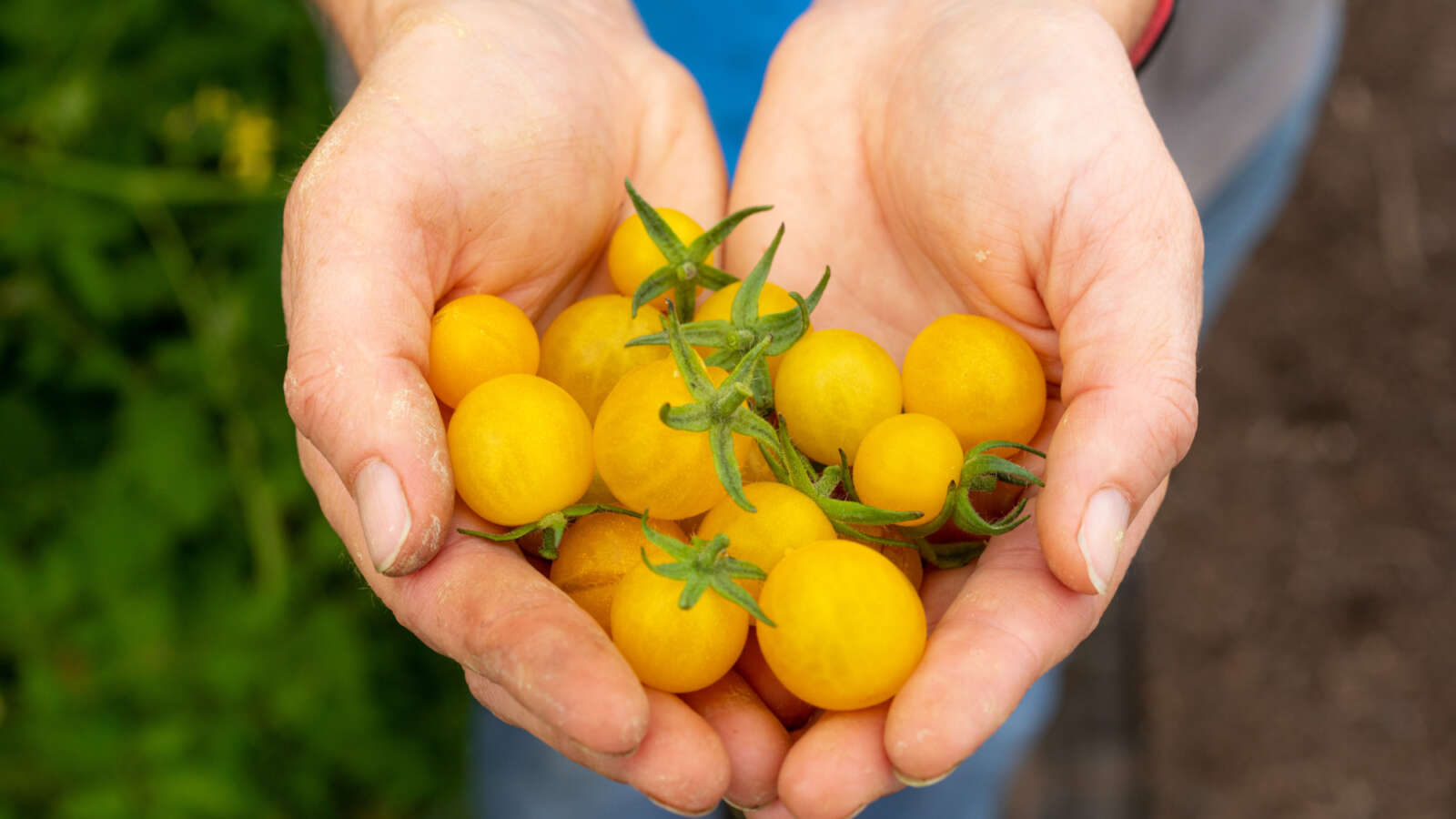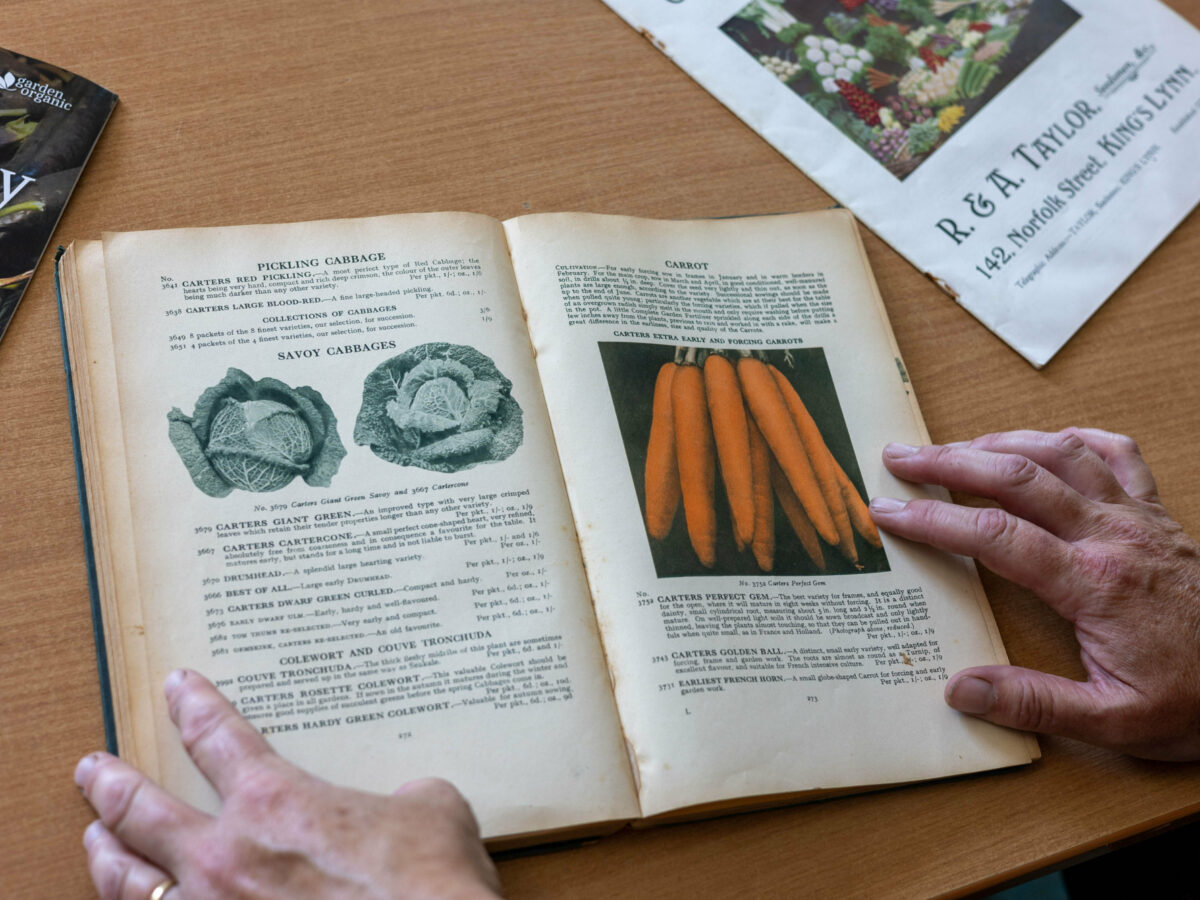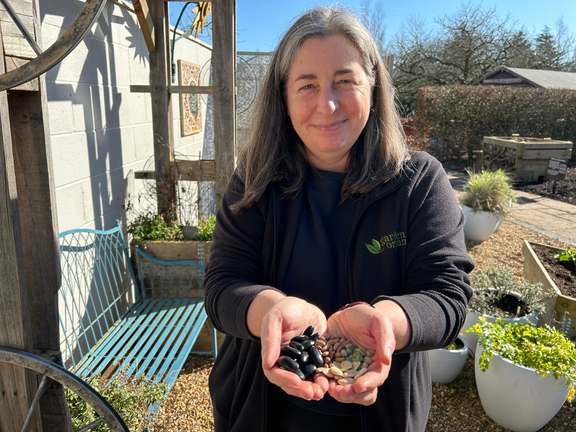
Heritage vegetables
What's so special about our heirloom veg? 🔗
Our Gardeners' World Live show garden features vegetables specially selected from our living library at Ryton.
Once commonplace in veg patches, the 800+ varieties protected within the Heritage Seed Library are all heritage, heirloom or ex-commercial varieties no longer available for growers to access anywhere else.
Were it not for this vital conservation effort, these examples of precious biodiversity would be lost forever.
Read on to learn the stories of three of these unique vegetables...
Amaranth (callaloo) ‘Mr Jefwa's’
Ugandan Asian, Mr Jefwa, acquired these seeds when visiting a friend in Zealand (Holland) in the late 1990s. He found it grew well and was a tasty edible crop, so he continued to grow it and save seeds.
With dark purple-red flower spikes it's a striking feature in ornamental flower beds, but really comes into its own when the leaves are cooked as greens.
Snow pea 'Roi de Carouby'
Donated by John Yeoman, this French variety produces tall plants, with beautiful maroon and violet bicoloured flowers and succulent, sweet, stringless pods of incredible size.
Snow peas are eaten whole, pod-and-all, when the peas are beginning to develop in the pods. They're crisp and delicious when raw, but equally good lightly steamed or in stir-fries.
Our volunteer Seed Guardian, Adam Alexander, describes this pea has having 'stand-out culinary qualities', and we definitely agree!
Sorrel 'Noon's Close'
This variety was given to the Heritage Seed Library by the owner of the house once owned by the late Professor Tutin, University of Leicester Botanist and contributor to The Concise Flora of the British Isles. The house is in Noon's Close, Stoughton, Leicestershire, hence the name.
It's a broad-leaved sorrel; tasty by not too acidic, perfect for salads or a sorrel sauce for fish.
The best part, it's a hardy perennial that can be harvested all year until heavy frosts.
About the Heritage Seed Library
-

Why we grow heritage seeds
The Heritage Seed Library is a vital resource to connect people with seed, keep our heritage alive and increase biodiversity.
-

How the Heritage Seed Library works
The seed library holds over 800 varieties of seeds, including rare landrace varieties adapted to specific growing conditions, heirloom varieties saved over generations and varieties no longer available to buy.
-

Join us
By becoming a member you can join the thousands of people in the UK and overseas who are already leading the movement for an organic and sustainable future for us all.
